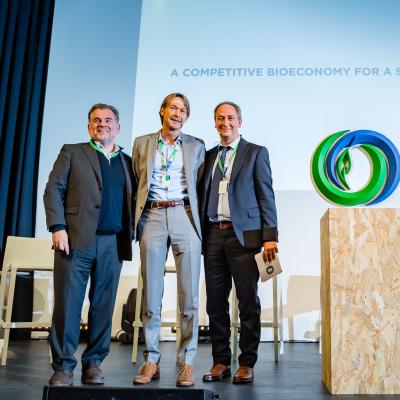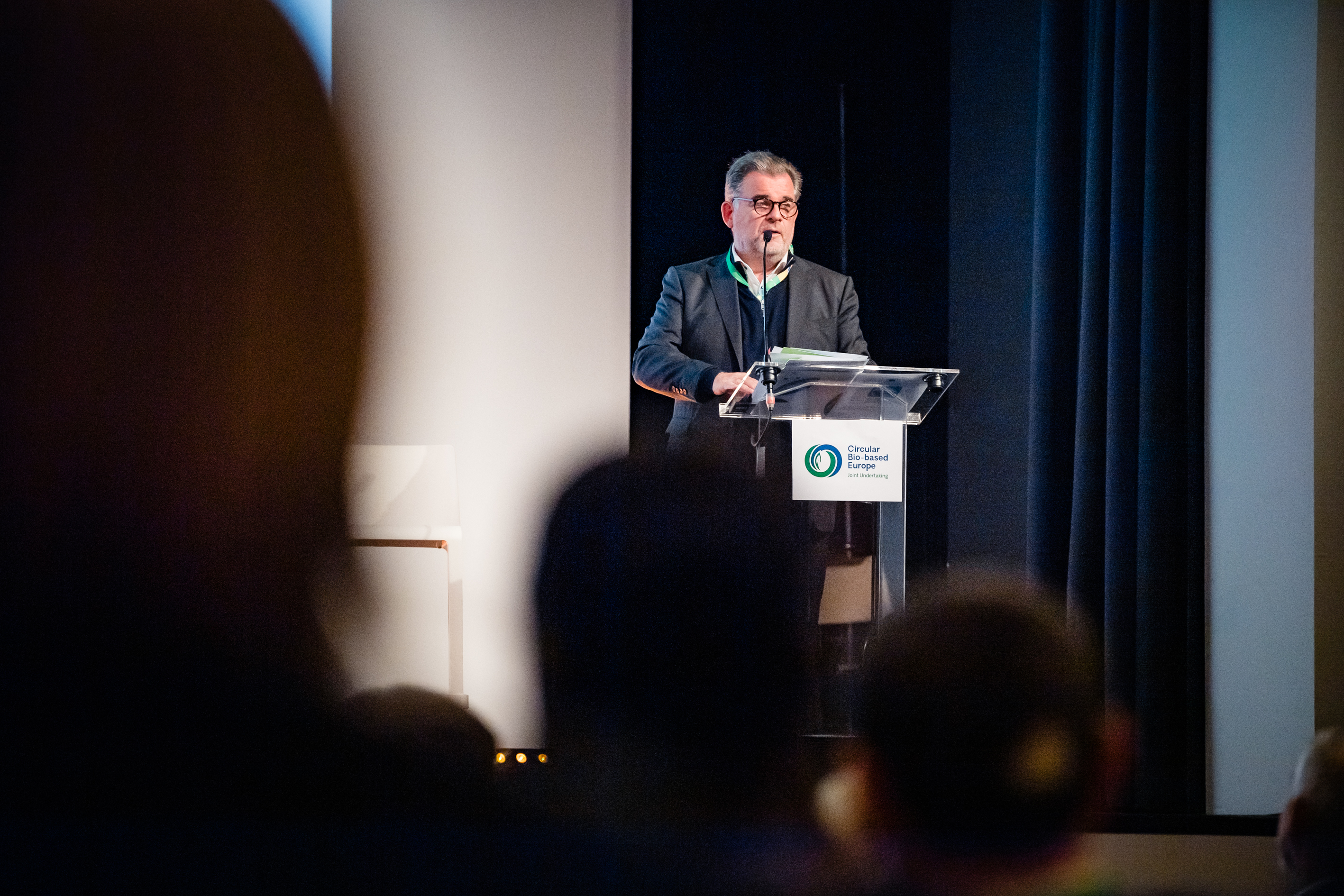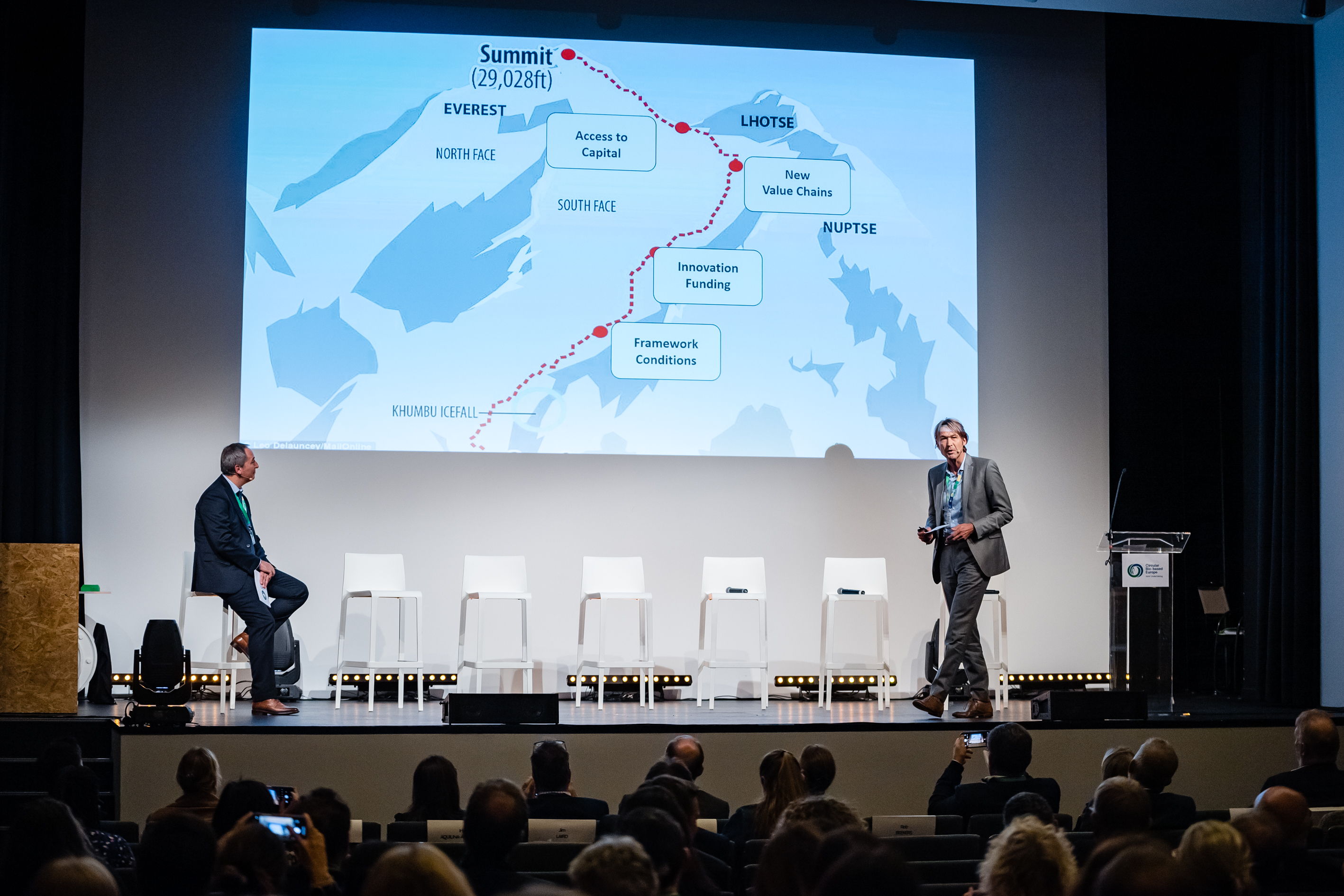
The public and private partners of the CBE JU, the European Commission representing the European Union and the Bio-based Industries Consortium (BIC), marked their commitment to the partnership deploying the circular bio-based economy in Europe. Both partners met with key stakeholders to recognise the previous partnership's achievements, mark the joint undertaking's full establishment and signal the common ambitions for the CBE JU.
John Bell, Chair of the CBE JU Governing Board and the European Commission’s Healthy Planet Director, opened the ceremony by recognising the relevance of the partnership’s full establishment: ‘we are celebrating the launch of the Circular Bio-based Europe Joint Undertaking, which took so much consistency, effort, imagination and commitment from both partners.’
The private partner, represented by BIC chairman Rob Beekers, echoed the public interest and signalled the bio-based industries’ commitment to the CBE JU: ‘the European Union can count on BIC and its members to be reliable partners. Together with the European Commission, we can make the transition to a bio-based economy happen.’
The next economy is circular and bio-based
Representing the Commission, Director John Bell highlighted that talking about the CBE JU’s goals is ‘talking about the next economy; we are talking about the European Green Deal in practice.’ Mr Bell pointed out that the challenge ahead is of planetary scale: ‘we are trying to solve the dilemma of our age: how to reconcile the biosphere and the economy. With CBE JU, we are starting to show, in practice, how we are going to do it. That, in itself, is something to celebrate.’

John Bell highlights the achievements of the CBE JU.
In the words of Rob Beekers, Vice-Chair of the CBE JU Governing Board, the CBE JU is a critical tool to ‘enable the transition to the bio-based economy.’ Making an analogy with the base camps that enable mountaineers to climb Mount Everest, Mr Beekers explained which are the base camps needed to achieve the circular bioeconomy: ‘First, we need framework conditions for the bioeconomy, especially for bio-based materials. Secondly, we need a better climate for innovations, and CBE JU plays a crucial role by focusing on close-to-the-market demonstration and flagship projects. Thirdly, we need to create new value chains across industries and countries, and BIC can help with its broad network of companies. Lastly, we need easier access to capital, where other European initiatives may play a key role.’

Rob Beekers explaining how to achieve a circular bioeconomy.
By depending less on fossil fuels and enhancing the EU’s autonomy, Europe would be in a much better position to avoid crises like today’s economic turbulences.
Rob Beekers, BIC chairman & Vice-Chair of the CBE JU Governing Board
Rob Beekers closed the event by reminding the audience that significant challenges come with big rewards: ‘the transition to the bioeconomy will require much effort, but the rewards will be huge. By depending less on fossil fuels and enhancing the EU’s autonomy, Europe would be in a much better position to avoid crises like today’s economic turbulences. Moreover, we would contribute to solving the climate crisis.’
Proven record of public-private collaboration
In his speech, Mr Bell underlined the public-private partnership’s success, under the previous Bio-based Industries Joint Undertaking (BBI JU) programme, in de-risking sustainable bio-based investments and spurring innovation in the European Union. The Healthy Planet Director emphasised Europe’s need for such a dynamic and agile public-private initiative, saying that ‘without the CBE JU partnership, none of the progress we are seeing in the bioeconomy would be happening at this scale, speed and in the European Union.’ Recognising the achievements, Mr Beekers highlighted that ‘the partnership has created collaborations that would not have happened without a joint undertaking.’